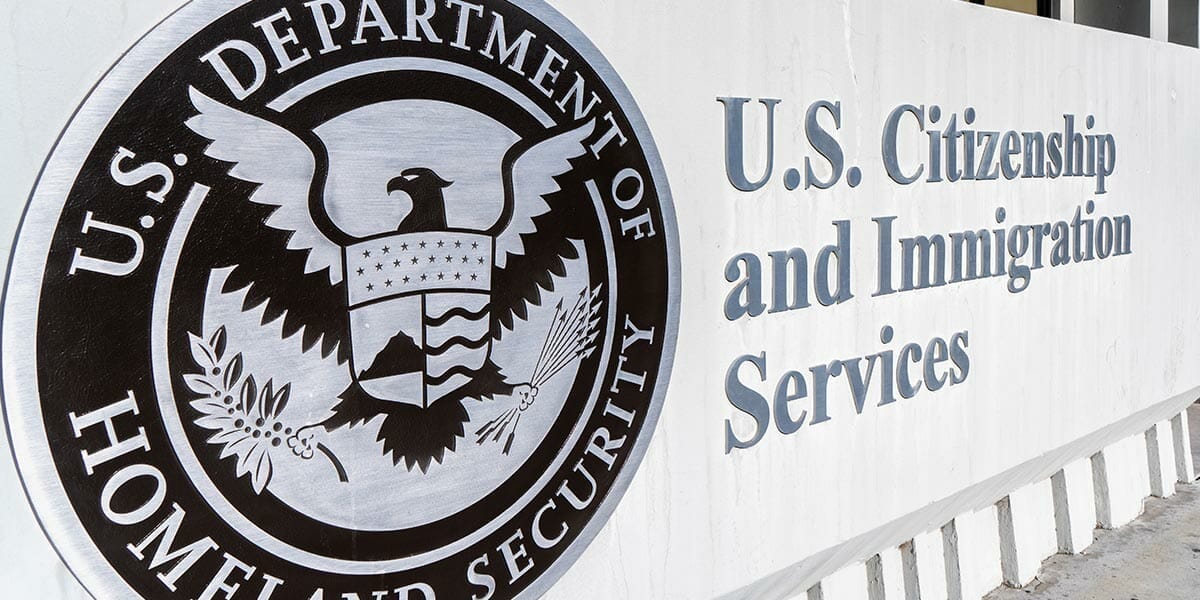
Every year, the Office of the Citizenship and Immigration Services (CIS) Ombudsman submits an annual report on U.S. Citizenship and Immigration Services (USCIS) to the United States Congress.
An ombudsman is an official that plays an important role in U.S. federal agencies — they are there to investigate complaints and attempt to resolve them, usually through recommendations or mediation. Ultimately, it means that people using the services of a federal agency have a third party they can go to with issues and have them looked into. The current ombudsman, Phyllis Coven, took office on March 14, 2021.
The annual report by the CIS Ombudsman is a summary of the most pervasive and serious problems facing USCIS.
Cross The Digital Divide
COVID-19 forced USCIS to close its offices, at home and abroad, exasperating existing issues, such as a backlog in processing existing applications and straining the already limited finances and capacities of the agency. It also exposed digital issues that plagued the agency such as, but not limited to, an inability to communicate online with non-English speakers, and a lack of public information and engagement with resources.
The report covers several resolutions to the digital issues, and proposes enhanced pandemic preparedness to alleviate some of the stressors of closing in-person services for most of the year. Recommendations focus on driving more people to better digital options and searching for a wider source of revenue beyond fees and congressional support. Only 40% of filings are handled exclusively through digital processing, 40% rely on paper processing, and the remaining 20% are handled in a hybrid model of digital and paper processing.
According to the report, “USCIS has drafted a plan to establish electronic filing procedures for all immigration forms and to implement a system to facilitate two-way electronic communications with its customers by FY 2026.”
Relieving Challenges to the Medical Disability Test Waiver
Applicants for naturalization can seek to be excused from the English or civics requirements because of a physical or developmental disability or mental impairment through form N-684 (“Medical Certification for Disability Exceptions”).
The form must be signed by a medical doctor, clinical psychologist or a doctor of osteopathy. Completing the form can be a complex and expensive process, and it’s easy to make mistakes. Additionally, a 2018 policy to prevent fraud has led to greater challenges for legitimate applicants.
To alleviate the backlog, and prevent incomplete information and mishandling, the USCIS ombudsman recommends that forms be pre-adjudicated at the National Benefits Center (NBC). The NBC would handle all aspects of the evaluation and processing.
While the applicant may have done all they can on their end, mishandling by undertrained staff or rushed medical professionals can result in an incomplete form. To avoid this, increased training for USCIS staff is recommended, as well as expanding the list of medical professionals to nurse practitioners.
To foster consistency and efficiency, USCIS could, according to the report, increase public engagement with authorized medical professionals, as well as organizations that assist in ensuring the correct information is provided.
Improve the Removal of Conditions Process
Spouses who are not U.S. citizens and have been married for two years or less are not automatically granted permanent residence status, but rather a conditional green card valid for just two years. Within those two years, that spouse must file an I-751 form (“Petition to Remove Conditions on Residence”), in order to switch to a permanent green card. But policy and bureaucratic issues — what the report refers to as “competing priorities” — often mean that I-751 processing times fail to meet statutory timeframes, leaving applicants in limbo as their conditional green cards risk expiring.
To prevent this, the report recommends several actions, such as extending the validity period of the conditional green card, and also communicating processing times so that applicants can apply before their green cards expire. Another recommendation is that the I-751 and N-400 (“Application for Naturalization) be processed concurrently,
Shift Strategic Priorities
The report suggests a shift in priorities to address what it described as a pervasive lack of transparency, both within the agency and its processes, as well as how the agency works with other U.S. departments and agencies. These priorities are:
- Upgrade technology to improve customer service.
- Respond more quickly to requests for assistance. “Our office should serve as an ambassador for the use of USCIS’ electronic tools and help customers successfully navigate their own immigration experience,” wrote the ombudsman.
- Identify trends and release studies and recommendations throughout the year to improve agency processes.